
ATRA X NUMÉRO BERLIN: “TIMELESS LUXURY: IN CONVERSATION WITH RENOWED DESIGN AND ARCHITECTURE STUDIO ATRA”
Finding balance between chaos and structure, nature and technology, taste and function:…
Interview by Sina Braetz
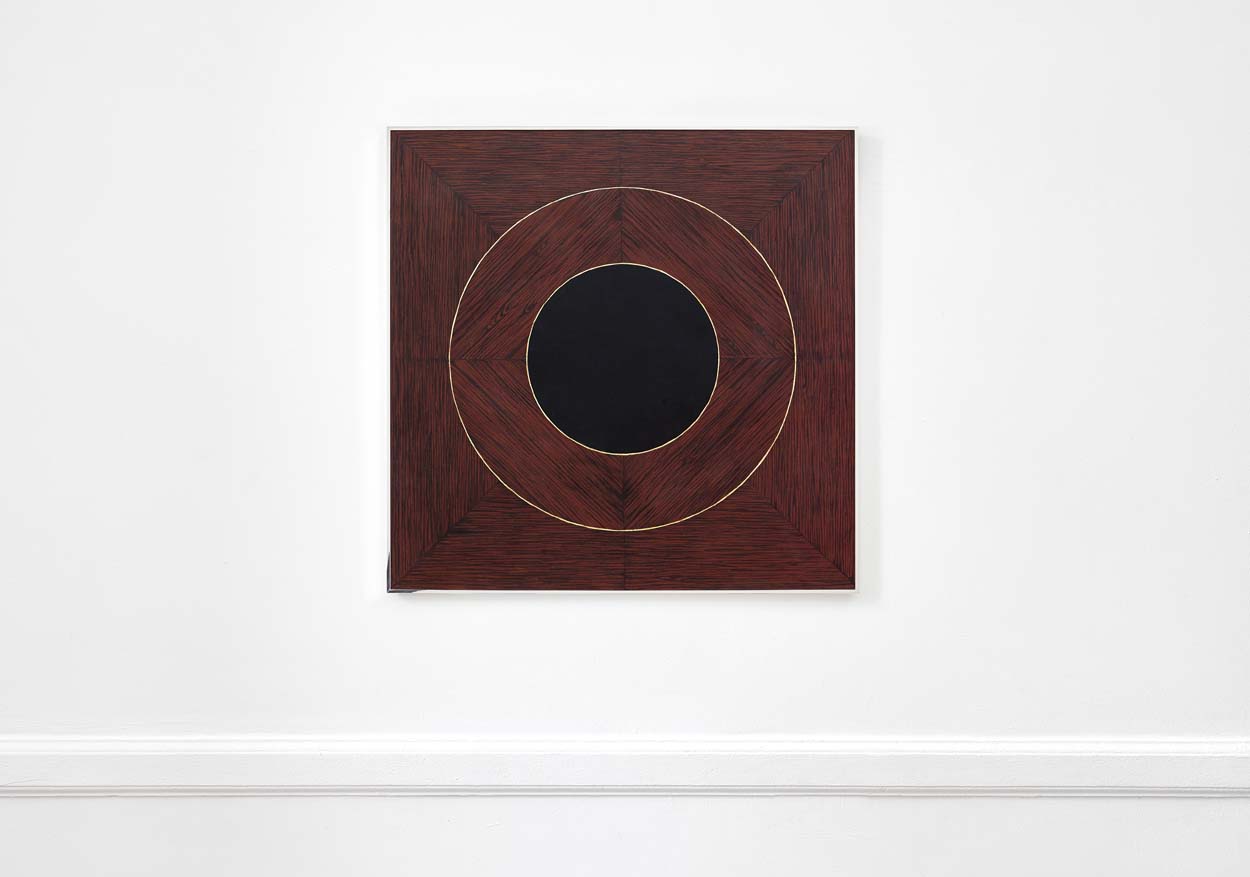
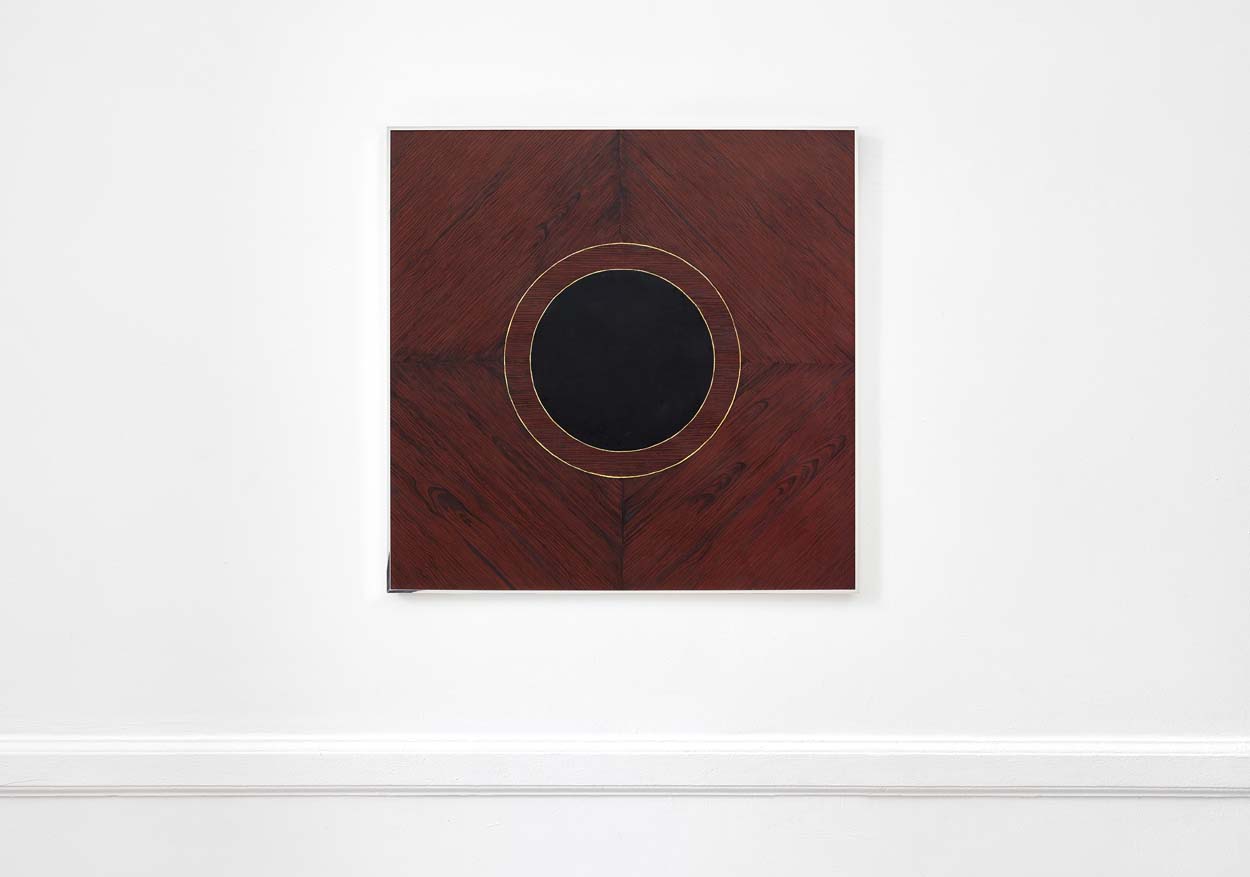
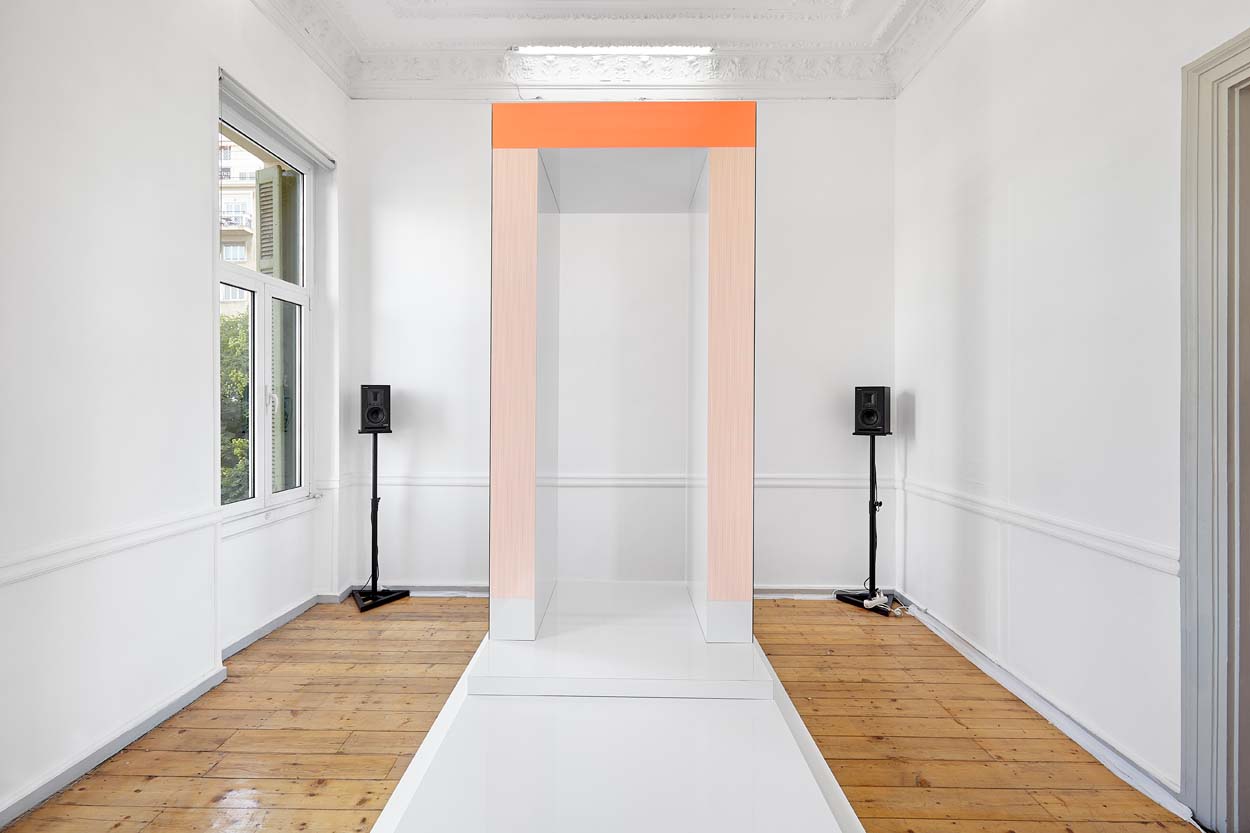
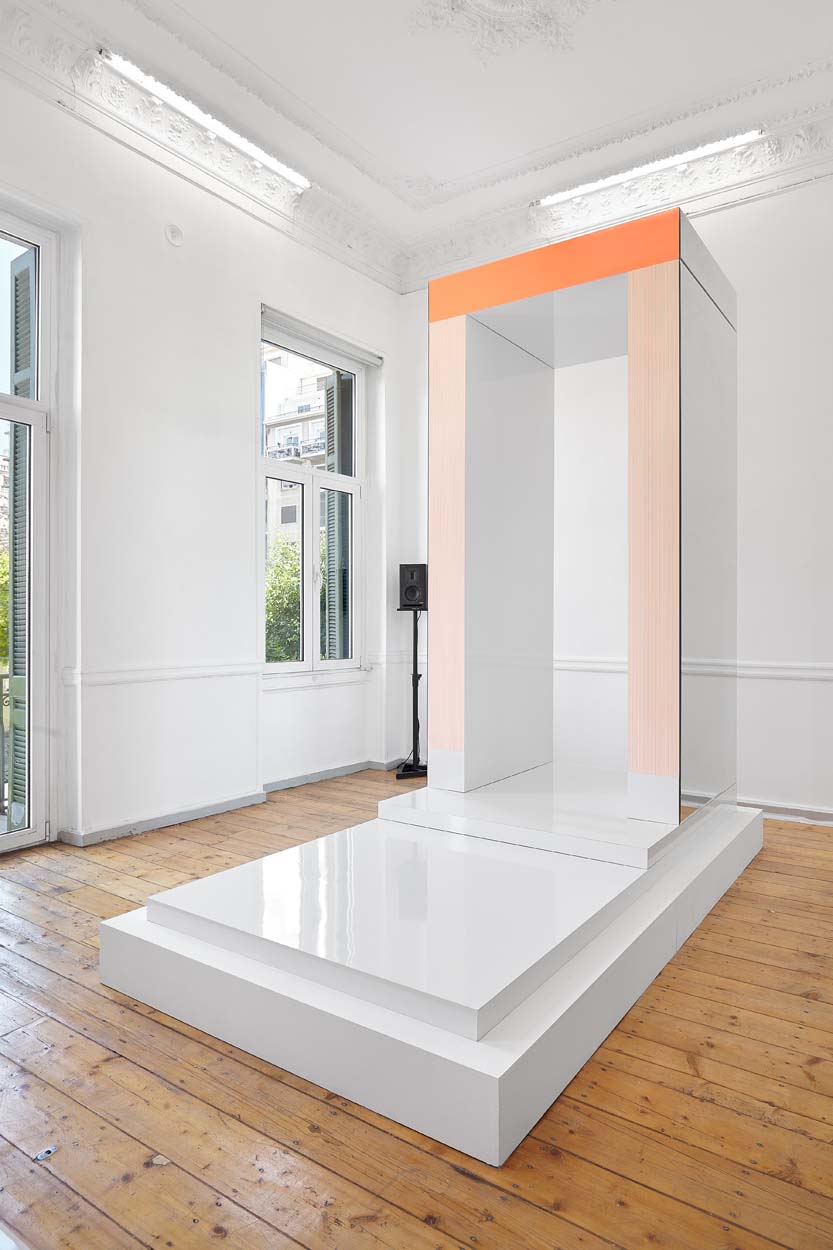
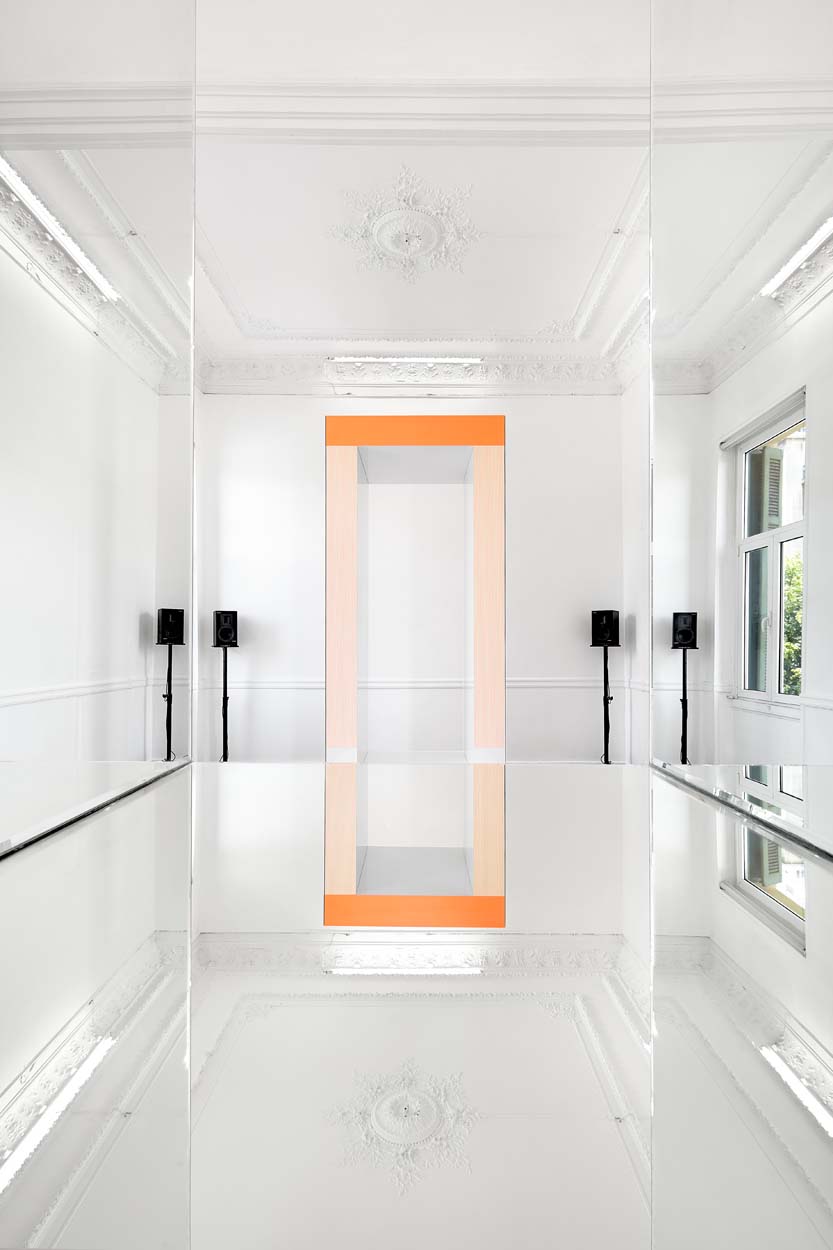
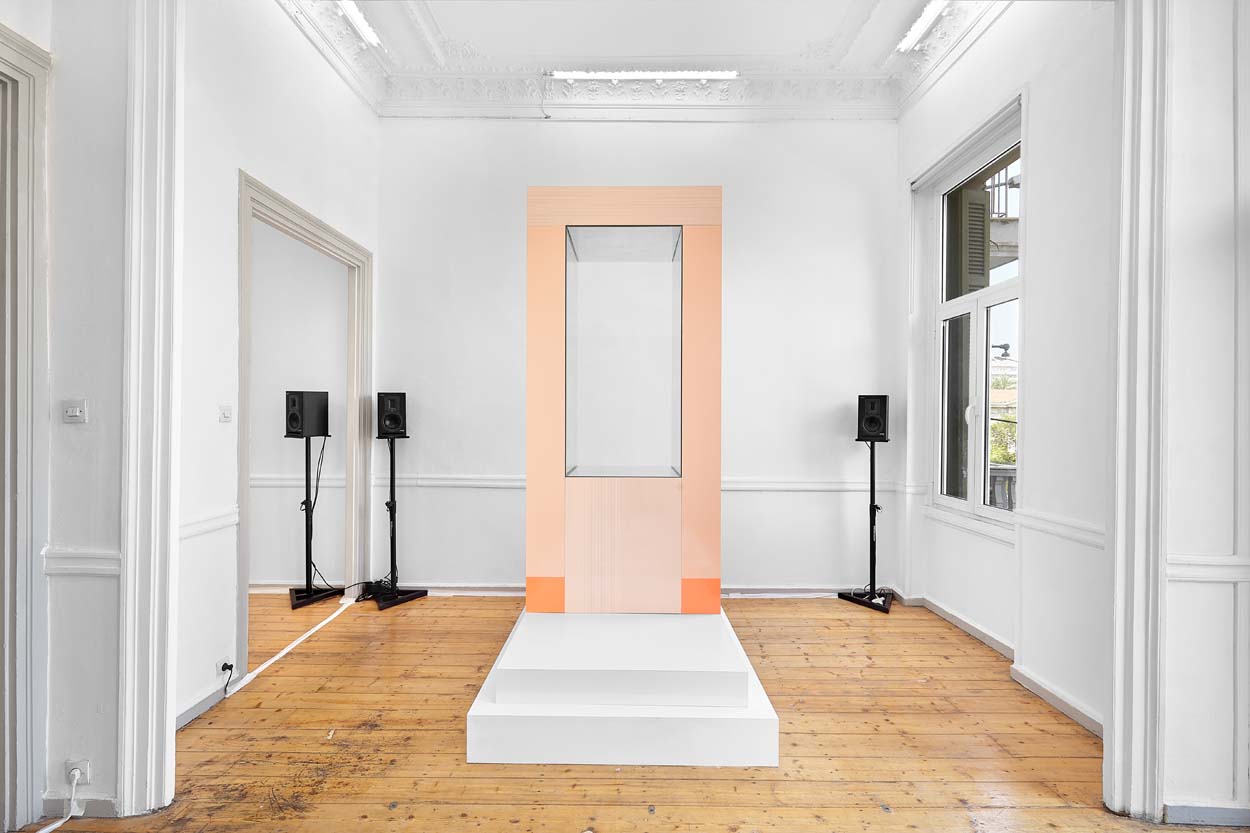
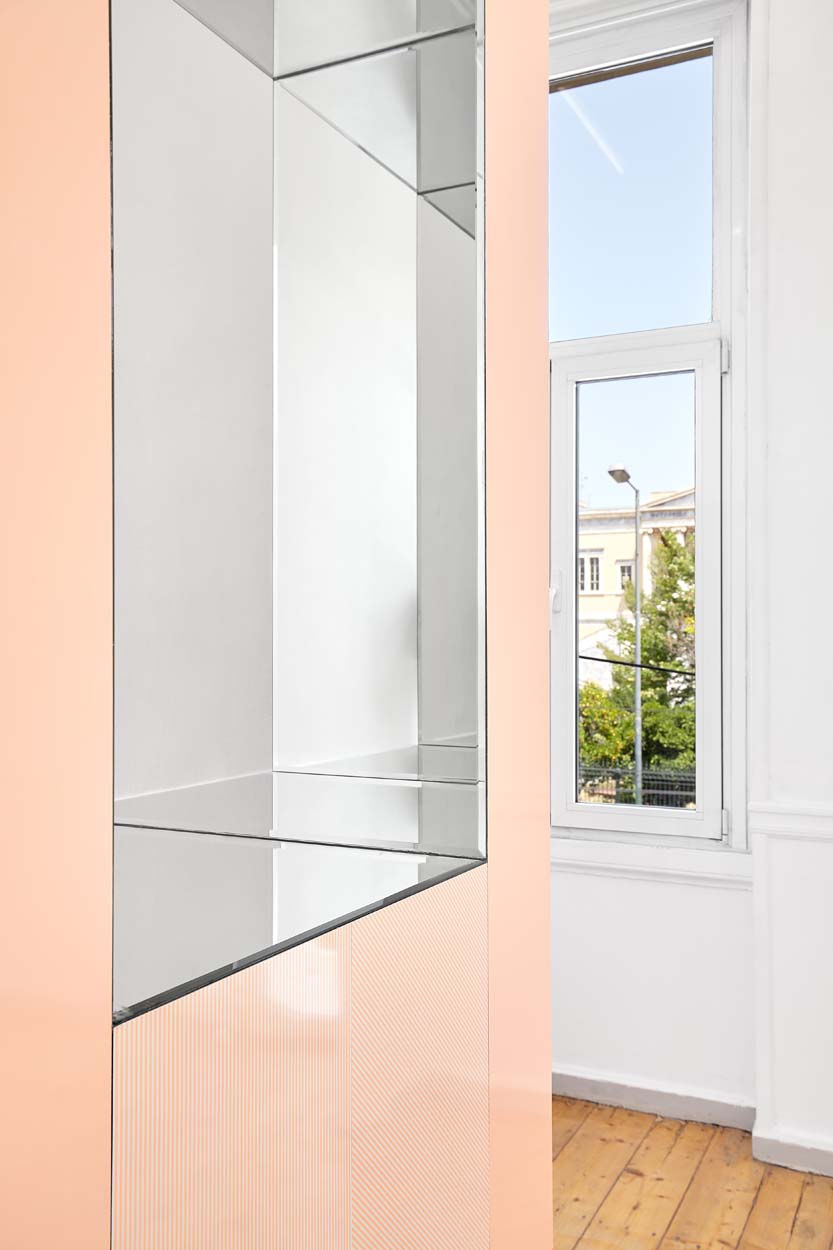
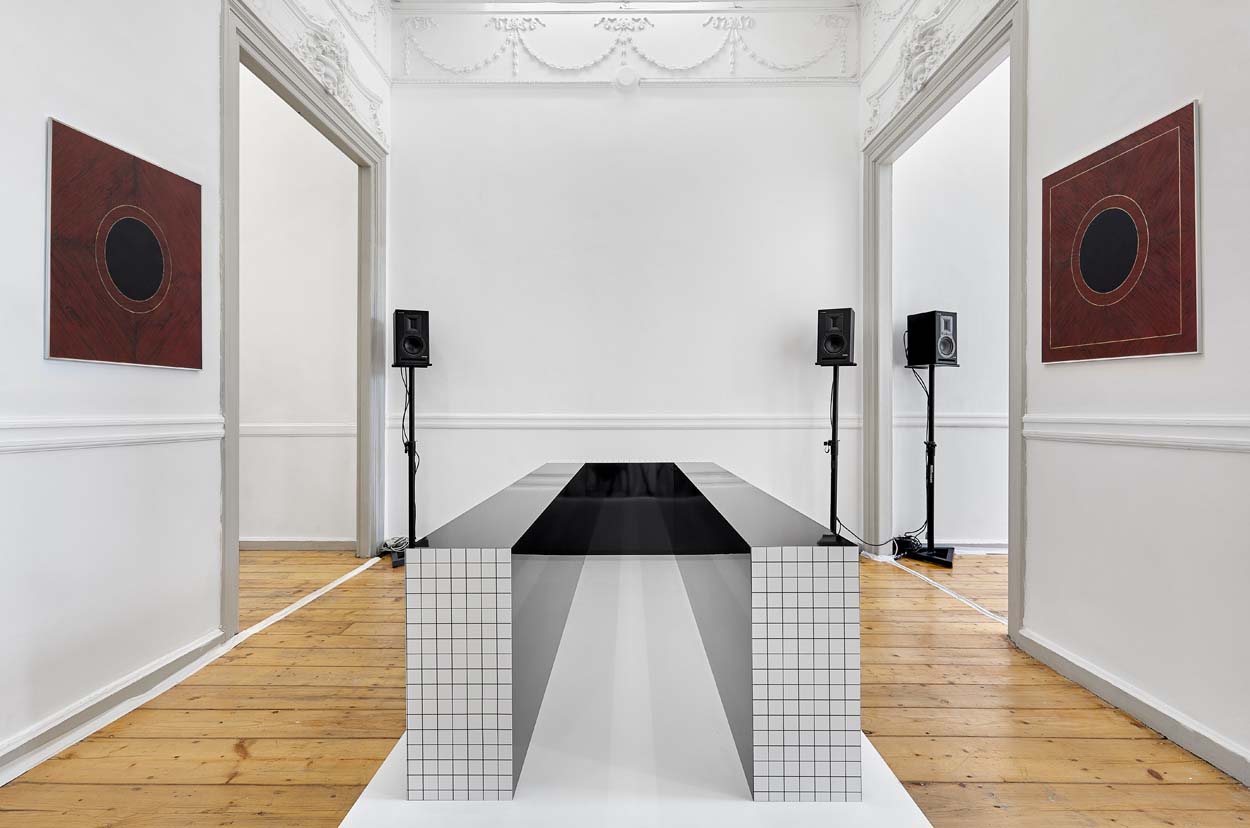
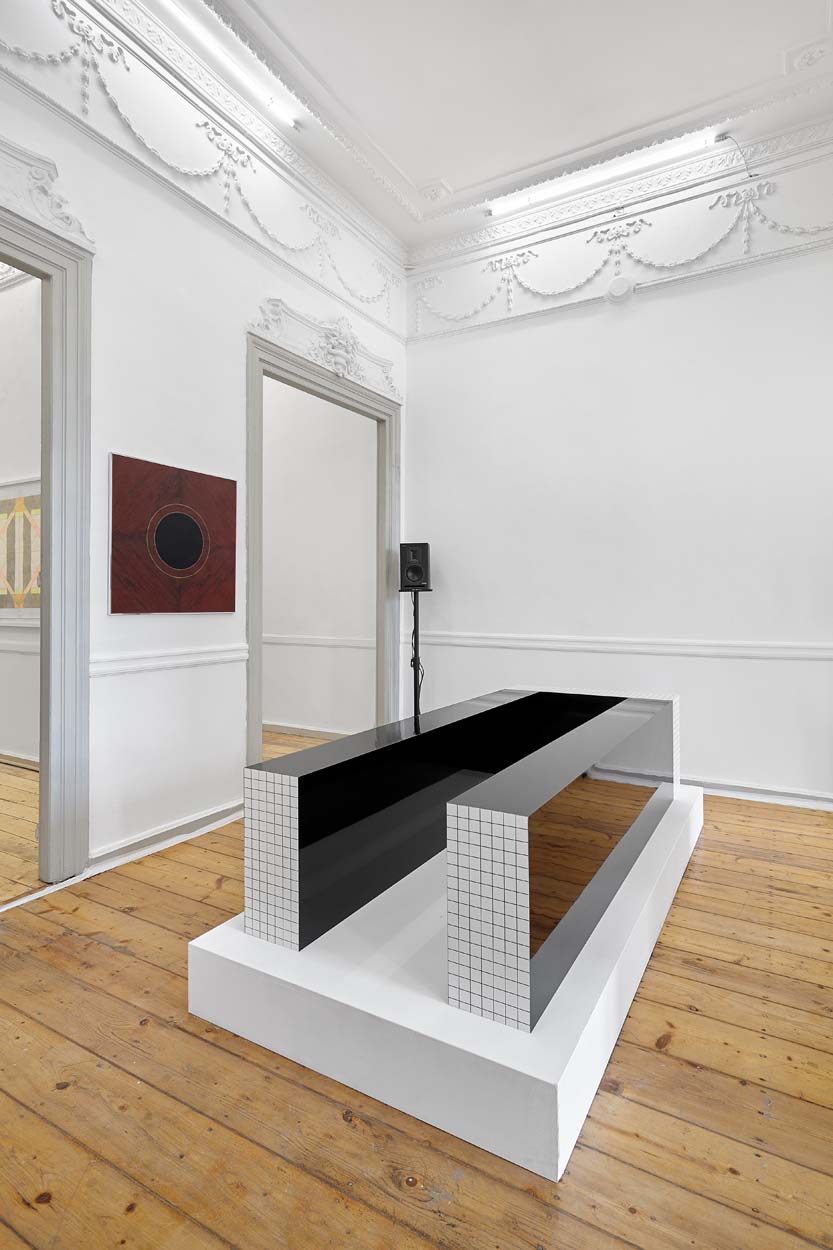
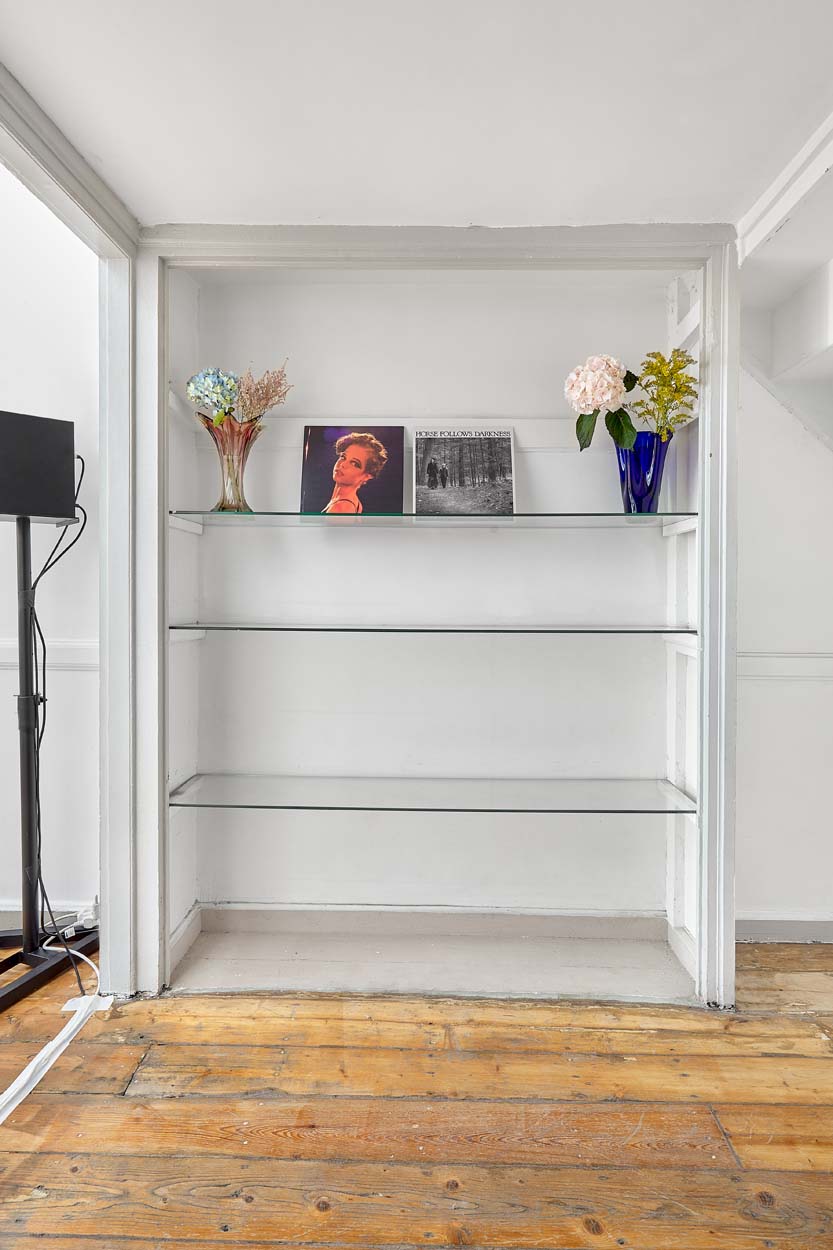
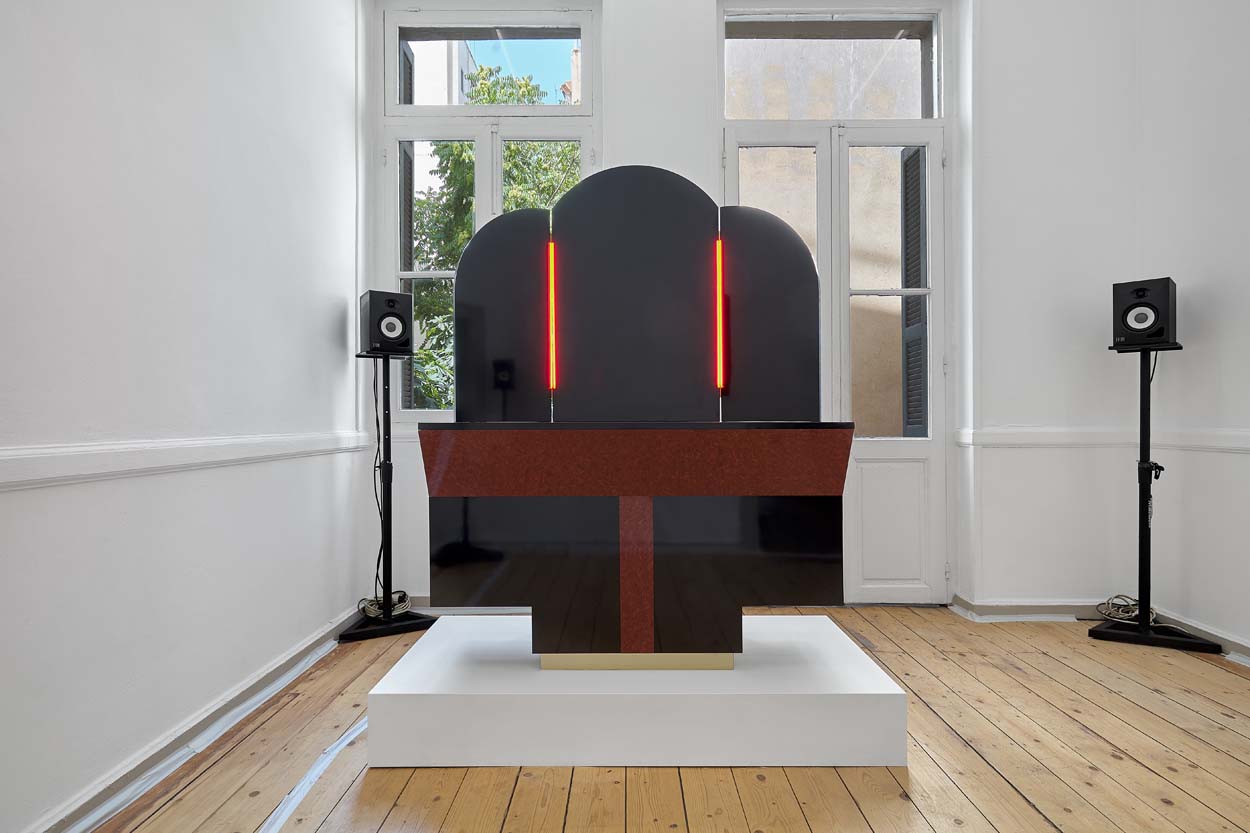
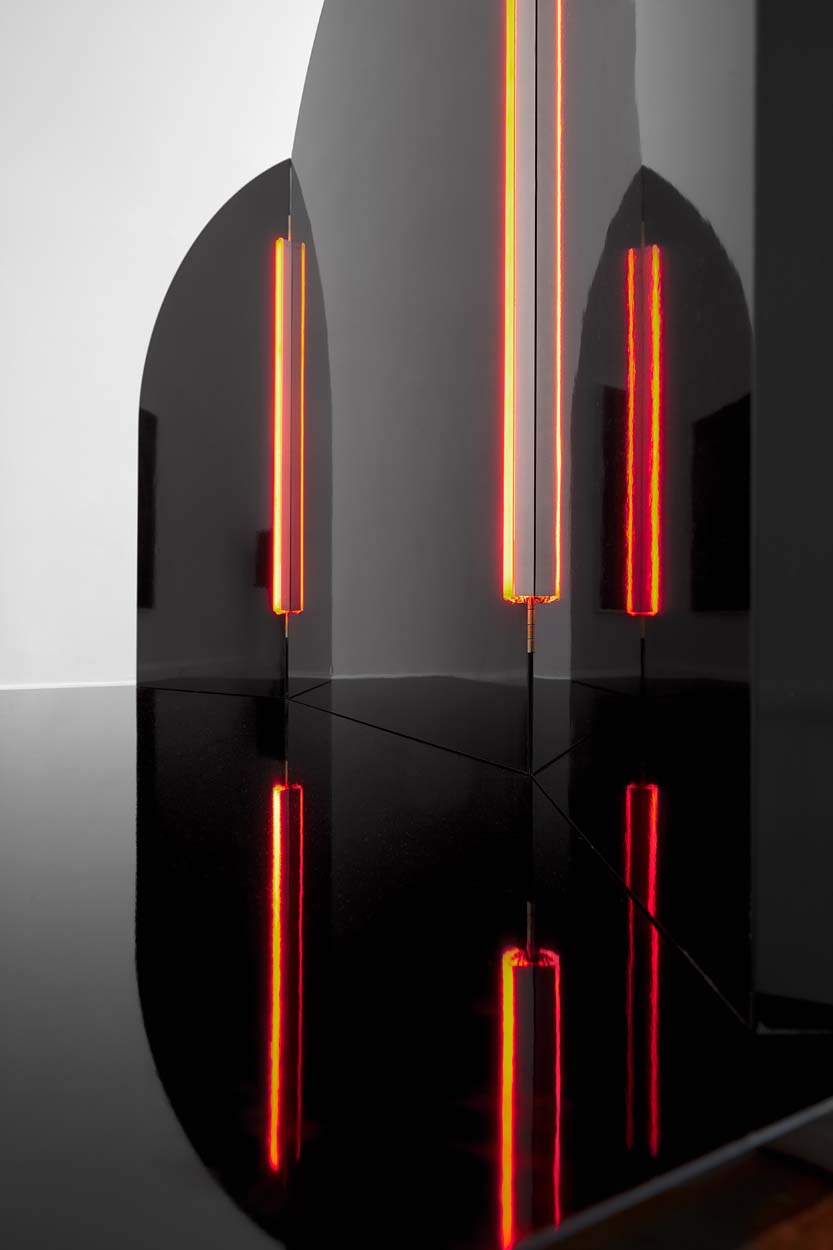
Delia Gonzalez’s exhibition, “Fassbinder Has Wings, Fassbinder Can Fly,” showcased at Hot Wheels Athens, serves as an exploration of divinity and the human experience within the context of prevalent technological odysseys. During a recent conversation with Gonzalez in Rome, we delved into the intricate web that connects aesthetics, our innate yearning for divinity, and our ceaseless quest to transcend the present. The exhibition sets a glamorous scene, reproducing the Athens Polytechnic interior design, as Gonzalez investigates whether these aspirations are inherently tied to our quest for higher ideals.
Delia Gonzalez is a Cuban American artist known for her multi-disciplinary approach, spanning film, sculpture, drawing, painting, choreography, dance and performance. Her artistic practice often explores themes of spirituality, identity, cinematic histories, and the interplay between the physical, mystical and metaphysical realms. Additionally, she is recognized as a musician and composer, having collaborated with artist Gavin Russom under the name “Black Leotard Front” and released music with DFA Records.
Gonzalez’s recent solo show drew inspiration from the characteristic decadence of 1970s sci-fi imagery—a vision of a grandiose future from her childhood alongside the dystopian realities depicted in films throughout that era. Her fascination with such cinematic aesthetics, particularly the slickness of 1970s science fiction, has shaped shared perceptions of our future, as well as the ongoing pursuit of technological sanctity, redefining the devotional qualities informing our present technological existence.
Her exhibition, “Fassbinder Has Wings, Fassbinder Can Fly,” was inspired by Rainer Werner Fassbinder’s film, World On A Wire, which delves into the concept of simulated reality, where advanced computer programs create virtual worlds inhabited by artificial intelligence. The protagonist, Fred Stiller, is a scientist working on a simulation project, and as he journeys deeper into the artificial world, he begins to question the nature of reality and the boundaries between the virtual and the real. Gonzalez’s interest in the film touches upon themes of the self, individuality, as well as the impact of societal reflections and repetitions on our journey towards self-discovery. Interconnected with technological development, attaining divinity is timeless and surpasses generations. For her, the potential to break free from the repetitive cycle of our reality is a complicated feat which allows her to usher in more surrealist takes grown out of such realities.
Gonzalez tells me about the surreal and recurring mimicking scenarios that she has witnessed in social situations throughout her life, where people mirror one another, sparking a dialogue on individuality, consciousness, and the profound impact of technology, specifically, AI. She introduces an inescapable metaphor—the mirror—as an insignia of human behavior, denoting a conformity of emulation.
Enacting simulation is intrinsic to human behavior, Gonzalez explains to me, and the synchronous influence that AI evokes is just a technological resolution of understanding the self as a copy of another. For this exhibition, Gonzalez also introduces the idea of the mirror as a symbol of human behavior: how humans often mimic and mirror each other, raising questions about individuality and consciousness as they correlate with technology. She is interested in whether modern technology and AI are pushing us towards a cycle of repetition, ultimately leading humanity back to a position where something begins, arises, or is derived from—a repetitive copy of itself in an object-like imitation of a situation or process.
This can be understood as a feedback loop, helping us to understand complex systems of pattern recognition outcomes and how such patterns might shape the processes of human behavior in the future. A feedback loop is a system or process where the output or result of a particular action or behavior is fed back into the system as input, influencing or modifying subsequent actions or behaviors. In simpler terms, it is a self-regulating mechanism where the consequences of an action affect future iterations of that action. While mirroring alludes to self-awareness, introspection, or illusion, feedback loops describe self-regulation, self-correction, or patterns in complex systems.
In a world shaped by technology masquerading as artificial intelligence, the concept of divinity takes on new dimensions. Are we headed towards a higher understanding of ourselves, or are we losing touch with the spiritual realm? Is divinity a purely spiritual concept, or does it also entail a connection to a higher power? This interplay between divinity, AI, technology, and human existence underpinned by the allure and significance of aesthetics, perfection, and a longing for the past in shaping our perceptions of the future is evident throughout Gonzalez’s work. Gonzalez provocatively questions whether we are moving closer to divinity or losing touch with it. She touches upon themes of the self, individuality, as well as the impact of societal reflections of futurity and repetitions in the journey towards self-discovery.
Delia Gonzalez incorporates a digitally rendered and synthy soundscape of two similar sounding tracks that play alongside the formica replicas of the Polytechnic Athens’ interior structures, encapsulating the mood of the lobby’s design located just across the road from the gallery. This sort of mirroring blurs the boundaries between capturing a nostalgic, idealized vision of the future reminiscent of the glitzy 1970s films like Fassbinder’s “World on a Wire.” The allure of glamor and perfection are reiterated in this show, prompting contemplation as to whether these aspirations are intrinsically tied to our quest for higher ideals. “Fassbinder Has Wings, Fassbinder Can Fly” explores the essence of transcendence and divinity in Gonzalez’s symbolic use of the mirror, constellated as panel-portals throughout the installation, and its imposing role in our relentless pursuit for power and self-reflection in the digital age. At its most basic understanding, the human characteristics that we ascribe to technology.

Finding balance between chaos and structure, nature and technology, taste and function:…
Interview by Sina Braetz
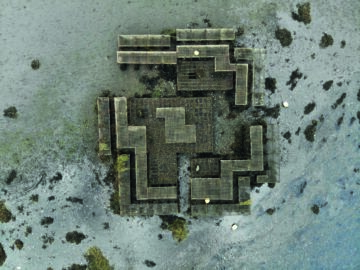
Artist duo Cooking Sections’ work combines art and activism, using food as a gateway to…
Interview by Johanne Björklund Larsen
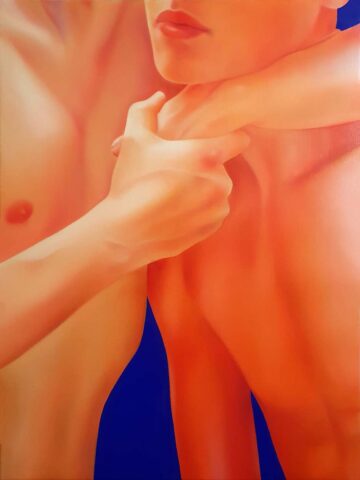
Just because a bed is empty, doesn’t mean it can’t be filled with longing.
Interview by Angela Waters